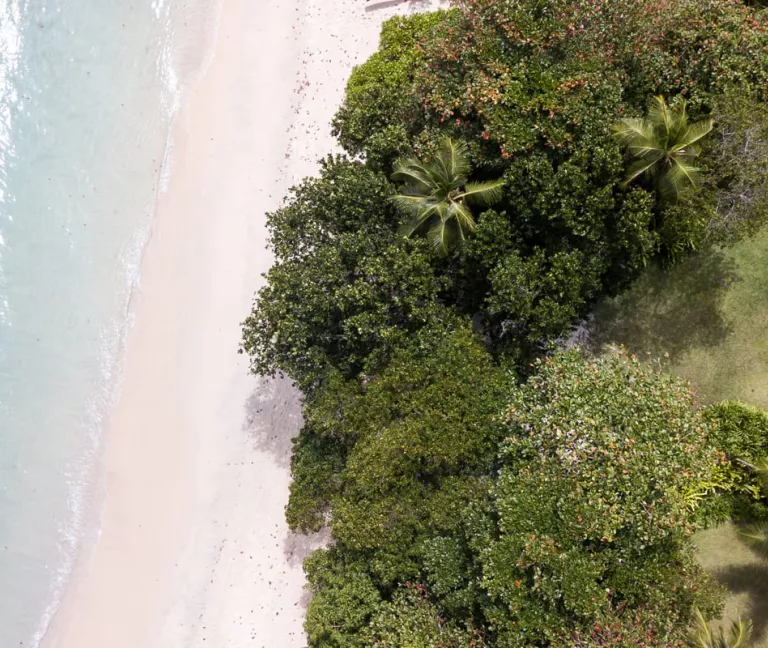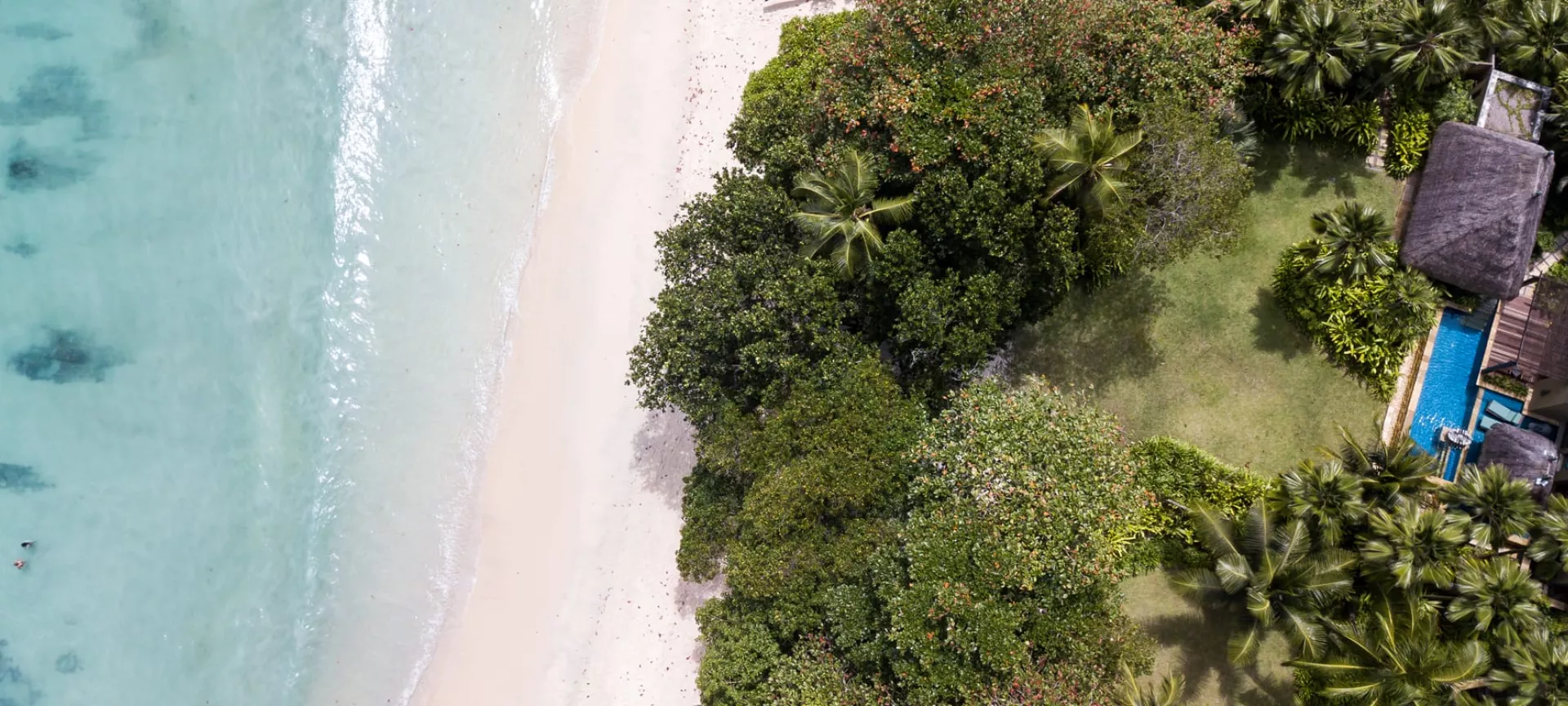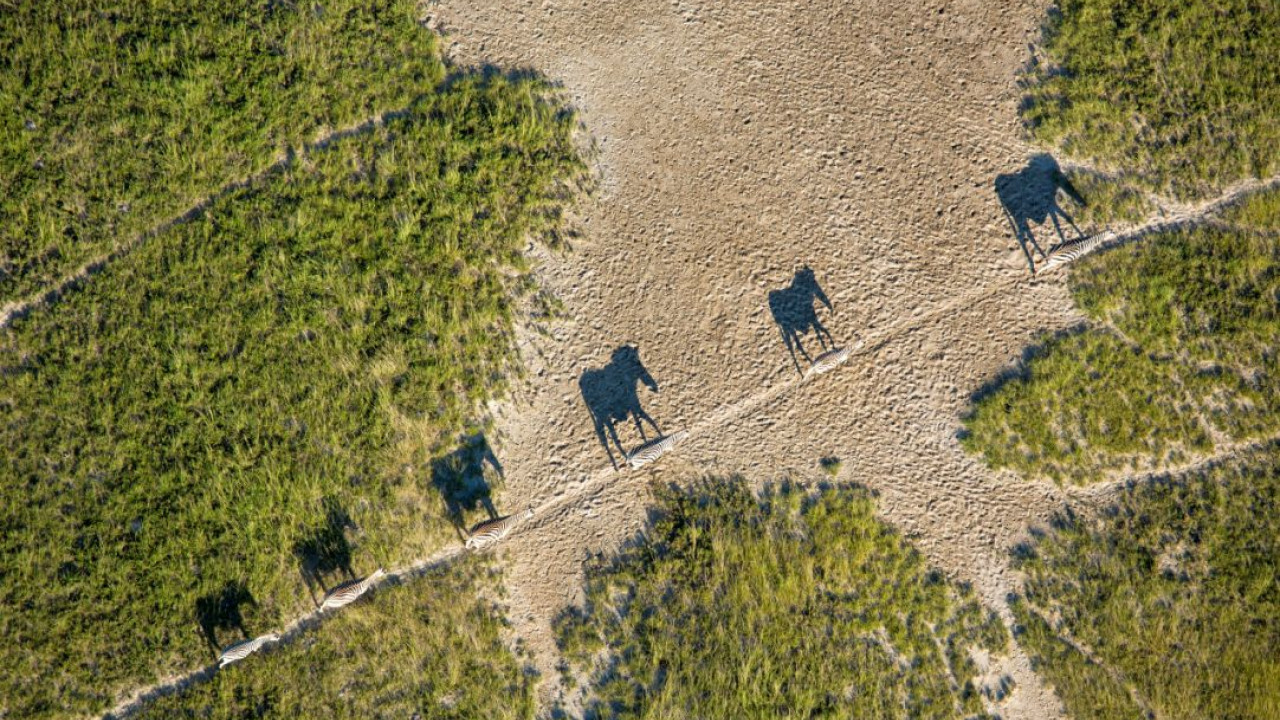
Migration:- (noun) the seasonal movement of a species from one region to another.
When borders closed and flights were cancelled throughout most of 2020-21, our ability to move freely around the world saw unprecedented disruption. While we hoped that this year would be an anomaly for us, some animals have had to survive with restrictions on their movement for generations.
Many will have heard of the spectacular wildebeest and zebra migration between the Serengeti and Masai Mara. Few, however, will have heard about Africa’s longest mammalian migration of zebra through Botswana.
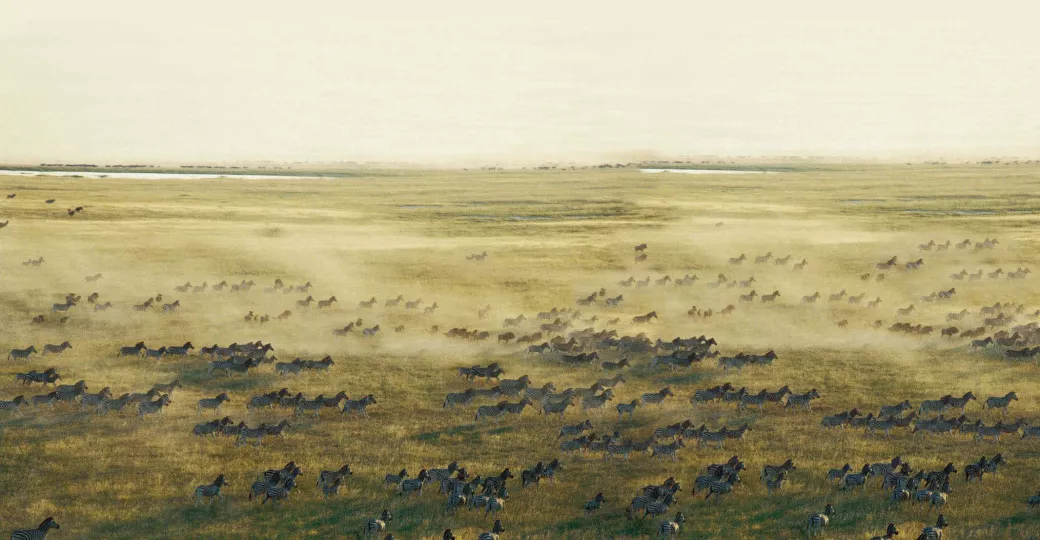
Zebra Migration in the Makgadikgadi Salt Pans - Natural Selection
Less than fifty years ago, in a bid to meet European standards of beef production, thousands of kilometres of fencing was erected across northern Botswana to limit the spread of disease between wildlife and cattle. These veterinarian fences unwittingly severed ancient migratory routes.
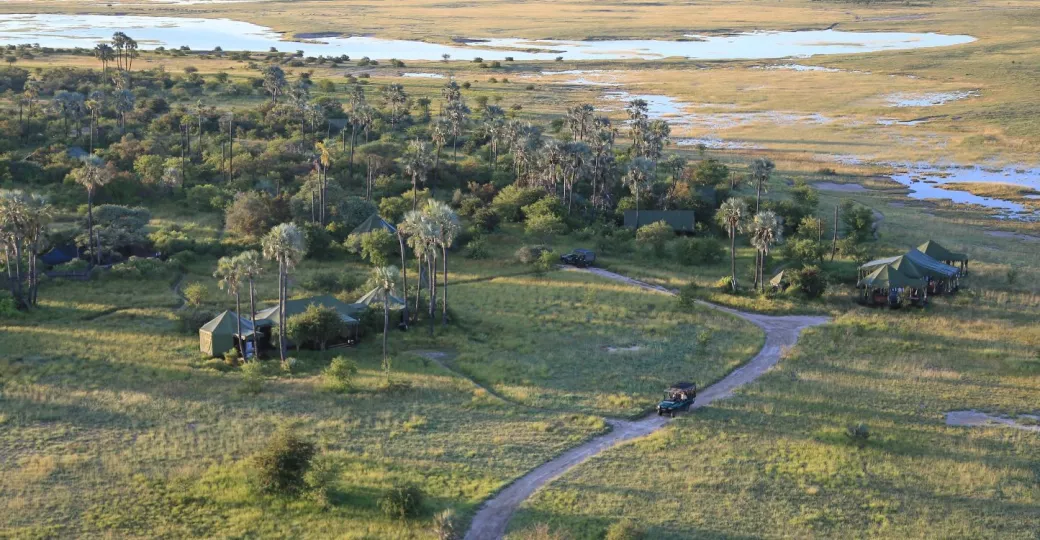
Jack's Camp, the best camp to see witness the zebra migration. - Natural Selection
Until recently, it has been hard to map out the exact migratory routes the zebra followed across the country. A number of recent studies are, however, beginning to reveal their journeys. Between “2008-2009 after the removal of a veterinary fence blocking a migration route, 15,000 zebras walked from the Okavango Delta to the Makgadikgdi Pans. An additional study recorded zebra crossing the Chobe River on Botswana’s border with Namibia and traveling south to Nxai Pan National Park.” (Dennis Sizemore)
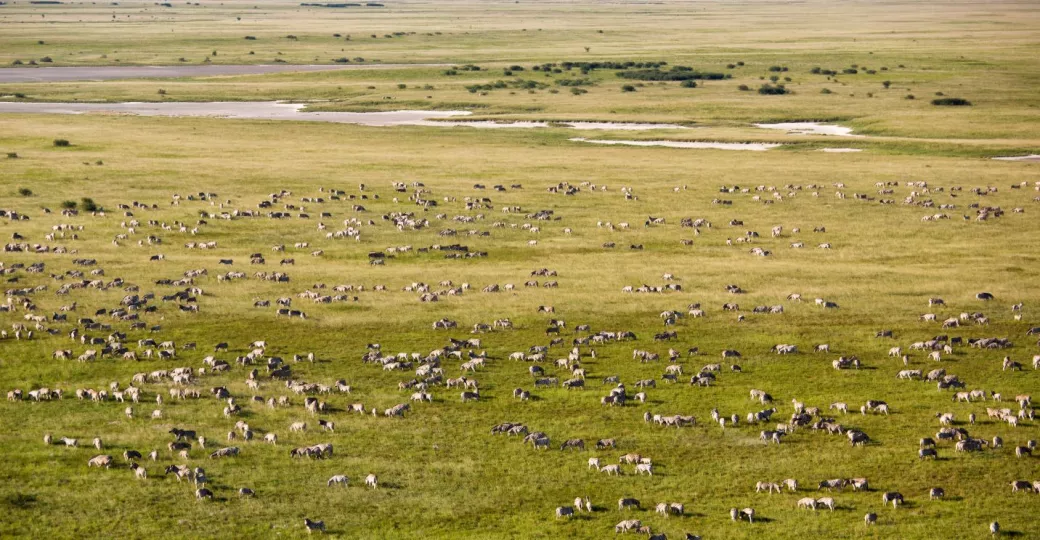
Zebra Migration in the Makgadikgadi Salt Pans - Natural Selection
What is extraordinary about this research is the fact that none of the zebra will have previously taken this journey. They were simply following the routes of their ancestors.
This has led scientists to speculate whether zebra have migratory routes genetically stored in their brains, or whether their incredible sense of smell and the onset of rains triggers them to move.
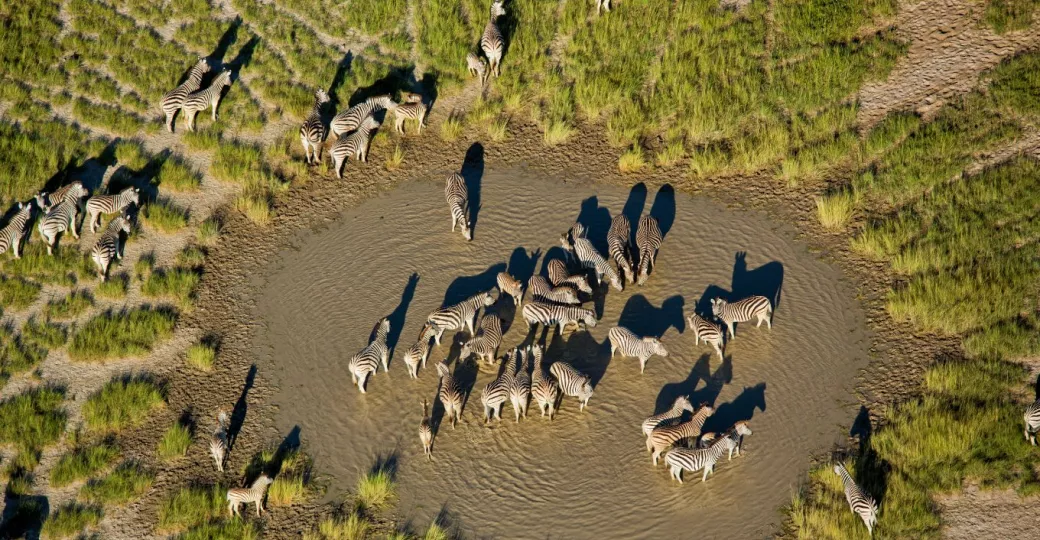
Zebra Migration in the Makgadikgadi Salt Pans - Natural Selection
Thanks to this research, an effort is now being made to remove other fences in a bid to open up more migratory routes. The benefits of this are far-reaching. The fences caused a catastrophic loss in the numbers of animals (not only zebra) that were trapped.
Despite their numbers stabilising, the loss of habitat and increase in human-wildlife conflict has been escalating at an alarming rate.
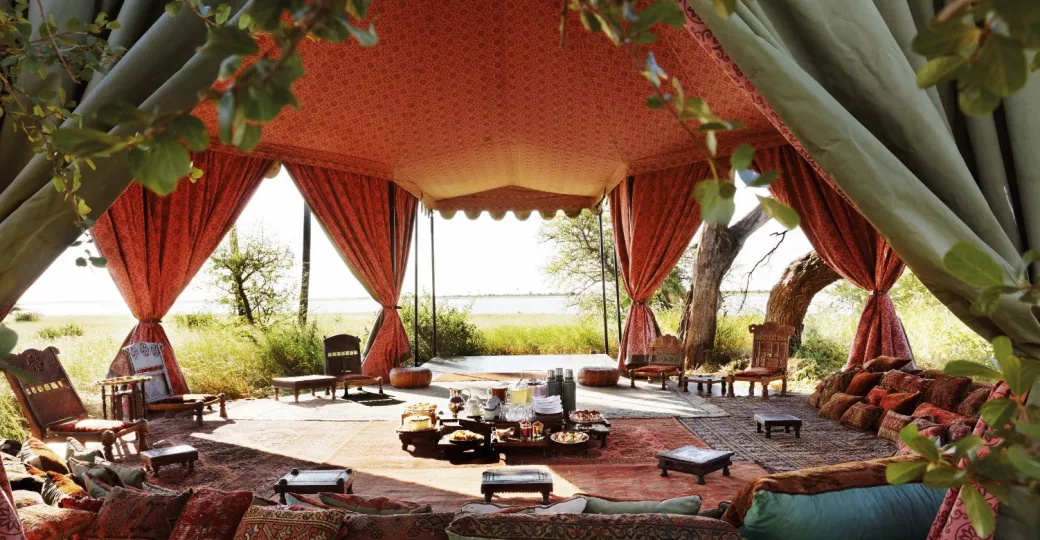
Jack's Camp, the best camp to see witness the zebra migration. - Natural Selection
Not only is the dropping of fences fantastic for wildlife, but it is also a real opportunity to improve local livelihoods by supporting sustainable land use and promote wildlife and community co-existence.
To find out more about the project, please contact us or visit Botswana Predator Conservation Trust, Round River Conservation Studies and Okavango Research Institute.

Toby Pheasant
Toby first visited Africa at the tender age of four when he accompanied his family on their first of several safari holidays. From that moment on Toby’s love affair with Africa’s nature and wildlif...
View profileNever miss a notebook entry with our newsletter

